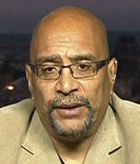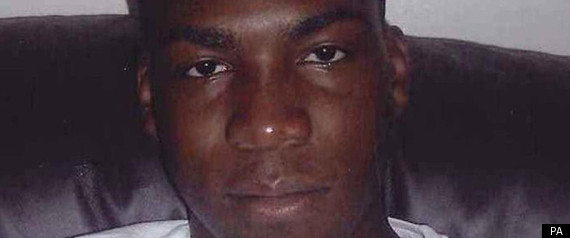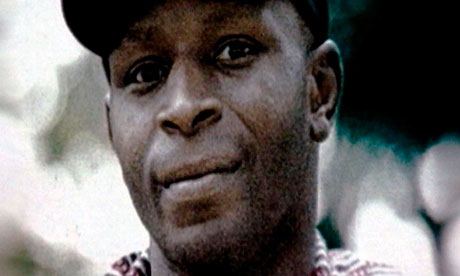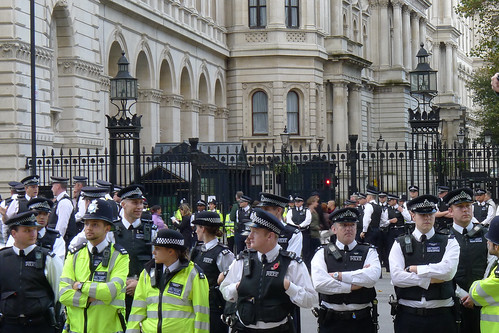 |
| London riots (photo: photoplan.co.uk) |
The London riots have attracted exceptional media and political coverage, but as the rebuilding work gets underway and the media coverage dies down the whiff of political interference in the dispensation of justice and the rancid stench of judicial racism begins to fill the air.
I have witnessed this first hand having spent three days at inner London Crown Court observing case after case being tried in the immediate aftermath of the riots. What I saw shocked me to the core: it reminded me of the chaotic ad hoc justice of the Wild West. Black offenders rights were dismissed, bail applications routinely refused for first time offenders and disproportionate sentences handed out down by an almost all white judiciary. It was carnage.
The Prime Minister David Cameron in part motivated this unnatural judicial zeal. His message of the need for swift justice resonated across the courts in Britain. The judiciary spent the summer doling out harsh sentences leaving us again deeply troubled about the question of fairness and who we can trust to be equitable.
Against a backdrop of regularly reported disproportionate outcomes for black people in the criminal justice system, we are quickly losing faith in a system that is already harder on us than it is on anyone else.
Is this hysterical and discriminatory justice a product of both institutional racism and overbearing political pressure? How can the judiciary claim to uphold the principles of fairness and justice for all citizens regardless of colour or faith in the light of the overwhelming evidence that points to racist sentencing practices in some of our courts? Is the judiciary truly independent in terms of decision making and sentence passing?
This is not a rhetorical question especially when you consider the Guardian has recently reported that a recent report from the Ministry of Justice study shows that offenders from ethnic minorities are more likely than their white counterparts to be sentenced to prison for certain categories of crimes, according to an analysis of more than one million court records. You can read more here:
The Guardian goes on to report that “the difference in racial sentencing between courts was also considerable. Haringey magistrates court, which dealt with many of the Tottenham riot cases, sentenced – before the summer disturbances – 11 of the 54 black defendants it dealt with for public disorder or weapons offences to prison, as compared to 5 of 73 white defendants. While West London magistrates court sentenced 17 of 107 black defendants to jail, versus 21 of 237 who were white – meaning at that court black defendants were 79% more likely to be jailed.”
The fact is that either as victims of crime or as offenders, black people in Britain are treated as third class citizens. Fundamental to any notion of citizenship is the principle of equality and that remains elusive to most black people in Britain. Whether it is as victims of crimes or those who have suffered deaths in custody or as offenders, we are treated differently and I might add without fear of any real consequences, by a police service and judiciary that operates beyond and above the law.
After the recent summer riots PM David Cameron virtually instructed the judiciary to hand out exemplary sentences to rioters. Contrast this to the soft touch and sympathetic hearing given to MPs and Lords caught up in the expenses scandal and you begin to see how it is that the legitimacy of the state is in crisis. From bankers bonuses to public sector cuts and the inequity of racist sentencing more and more people are questioning the very basis of justice in the UK.
As a modern 21st century democracy we are supposed to be guaranteed the ‘separation of powers’, of the state and the judiciary a widely accepted model for governance of a modern democratic state. The concept of separation of powers assumes that the three categories of public power should have the necessary constitutional wherewithal to resist encroachment or influence by the others. The state is divided into branches, each with separate and independent powers and areas of responsibility so that no one branch has more power than the other branches. The normal division of branches is into an executive (the part that executes the laws), a legislature (the part that makes laws) and a judiciary (the courts that decide if laws have been broken). Britain’s unwritten constitution is predicated on this model.
If you check the Judiciary of England and Wales website you might be encouraged to see their commitment to Judicial Independence. Their opening statement says: “It is vitally important in a democracy that individual judges and the judiciary as a whole are impartial and independent of all external pressures... so that those who appear before them... can have confidence that their cases will be decided fairly and in accordance with the law. When carrying out their judicial function they must be free of any improper influence. Such influence could come from any number of sources. It could arise from improper pressure by the executive or the legislature... the media... or other judges, in particular more senior judges.”
That said as black British citizens we should expect that sentencing decisions for those involved in the London riots would be free from racial bias and political pressure from external sources. We should have complete confidence in judicial objectivity. We do not enjoy that confidence that has been systematically eroded by a number of critical factors.
Firstly who are the judiciary? In 2008 Jack Straw told MPs that “there were too few women and people from Black and Asian backgrounds [who] are appointed [as] judges”. Yet two years later we read in the Guardian (24 February 2010) “The lack of diversity among judges is affecting the experience of people who use the courts and limiting judicial perspectives on critical legal issues.” The Neuberger Report on diversity in the judiciary further criticises the lack of diversity with statistics in 2009 showing that only 19% of judges were women, and 4.5% from ethnic minority backgrounds.
 |
| Judge Barbara Mensa - but statistics show that there is a real lack of diversity in the judicial system |
Numerous criticisms still abound decrying the continued and preferred selection of the white, male, and upper-class candidates for judicial posts. Whilst the judiciary might afford themselves the delusion of considering themselves free from racism and undue influence, they are neither free of institutional racism nor representative of the diverse community they serve.
And there are there worrying examples of what happens to black professionals within the criminal justice system who dare to speak out.
In her currently ‘banned” book Olivea Ebanks, a former prison service manager who took HMPS to court for racism quotes the Home Affairs select Committee Report entitled ‘Nature and extent of young black peoples overrepresentation’ in the criminal justice system (2007).
“Once they have been charged with an offence, black young offenders are significantly less likely to be given unconditional bail compared to white young offenders and black young offenders are more likely to be remanded in custody compared to white re-offenders. In 2004/05, 8.1% of black people under 18 were remanded in custody, compared to 5.1% for Asian and 4.4% for white people of the same age-group. REF: 24.
We know that young black people and young people of 'mixed' ethnicity, when sentenced, are more likely to receive more punitive sentences than young white people. Whereas black young offenders accounted for 6% of total offences in 2004-05, they received 11.6% of total custodial sentences.”
Ms Ebanks’ recounting of these facts has been met with condemnation from the Ministry of Justice (MoJ) and the Judicial College where she works. Ms Ebanks was suspended from working with judges on matters of leadership and equality and disciplined for publishing her book and sharing information that is already in the public domain by way of being heard in open court. She is now preparing to go to court again to defend her right to raise issues of racism in the workplace and tell her story.
Her employer’s reactions to her sharing that simple fact that she won rulings against HMPS, and highlighting how MoJ have subsequently treated her, does not scream of a Ministry of Justice committed to even-handedness.
If this is how they treat their employees then what hope for those black suspects who they believe have broken the law.
In a recent poll carried out among The Voice readers sixty-one percent felt that images of rioters and looters, caught up in the violent disturbances over UK in August, unfairly singled out black men (The Voice 16 August 2011). Again this is not something the Government or Minister Ken Clarke seems to be interested in rectifying. When it comes to the matter of fair and equal treatment from those who have been entrusted with said responsibility, it would appear that they are capable of only two responses: either they go all out to discredit and undermine you as with Ms Ebanks or they simply ignore us.
When you combine the perception of unfair targeting and criminalising of black people with the extremely worrying trend to make an example of the rioters, it is plain to see that we have a recipe for differential enforcement of looting and disorder laws. This in turn will certainly contribute substantially to increasing the already criminally high over-representation of black people in prison in England and Wales.
Of the recent riots Andrew Neilson, of the Howard League for Penal Reform, told the Times it was "fair enough" that the public disturbances were seen as an aggravating factor but added: "There seems to be a complete lack of proportionality to some of the sentences. These make a mockery of proportionality, which is a key principle of the justice system."
The Guardian revealed that magistrates were advised by justices' clerks to disregard normal sentencing guidelines when dealing with riot-related cases. This has alarmed some lawyers, who warn it will trigger a spate of appeals.
In sentencing four convicted Manchester rioters, a crown court judge, Andrew Gilbart QC, made clear why he was disregarding sentencing guidelines when he said "the offences of the night of 9 August … takes them completely outside the usual context of criminality".
Daniel Hamilton, director of Big Brother Watch, which campaigns for civil liberties has quite rightly said, "You should judge every individual case on its merits and every person on the basis of what they've actually done, rather than this creep towards... judicial activism, where politicians put undue influence on the judiciary."
All of this is against the backcloth of the BBC airing programmes asking if there is a “problem” with young black men; their insensitive and inflammatory questioning of Darcus Howe about the riots, concerted attempts to discredit community Tottenham activist like Stafford Scott who resigned after being mislead by the discredited IPCC and Enoch Powell type comments made by well-known historian and broadcaster David Starkey blaming ‘black culture’ for turning white youngsters into looters. Then we have had the critical attacks on multiculturalism by the Prime Minister and others in his party and the systematic degradation of the all of the recommendations of the Stephen Lawrence Inquiry report.
What we have is a layering effect where black people are consistently racially profiled by the police, portrayed as potential criminals and prone to violence without provocation by the media. The results are a reflection of the largely white upper class judiciary most of whom are incapable of viewing black defendants dispassionately.
The question remains: can a largely white elitist judiciary and one known for its tendency to hand out harsher sentences to black youth discharge their duties and exercise judicial independence and discretion fairly? My answer is a resounding ‘No!’
How can they make fair decisions that are not influenced by personal or societal racism political and political considerations rather than on the principles of law and justice? Of late I have seen less and less of the tripartite separation of powers. On a visit to Warrington in August Prime Minister David Cameron said: "It's up to the courts to make decisions about sentencing, but they've decided to send a tough message, and it's very good that the courts feel able to do that." This tough message of course was only sent after Mr Cameron as head of state sent his own unequivocal message... "And to the lawless minority, the criminals who've taken what they can get, I say this -- we will track you down, we will find you, we will charge you, we will punish you. You will pay for what you have done."
Could Mr Cameron’s strong words have influenced a judiciary infected with institutional racism in many ways and his endorsement of their flouting sentencing guidelines have given a green light to racism?
Just how much faith should we have in a 95.5% white, male, upper-class judiciary?
"There's no doubt that in certain circumstances a firm sentence is required," said John Cooper, a senior crime and civil liberties barrister. He goes on to say "What concerns me is that the whole range of the sentencing process has been unduly and disproportionately cranked up... influenced implicitly or explicitly by public opinion."
Well this concerns me too. If the sentencing process has been cranked up by institutional racism and political interference where does that leave us?
In the two hundred plus years since the abolition of the slave trade what is different in terms of white dominance in our institutions, in our politics and among our legislators and judiciary? Is the judiciary truly above the racism and the undue influence of politicians?
In light of biased media coverage and weighty political involvement and/or opinions about what the judiciary should do with rioters plus proven racial bias in conviction rates of young black men, we cannot allow judicial racism to run rampant just because the judiciary say that they are fair. Amid our ongoing battle for justice that includes our disquiet about arrest and conviction rates, and deaths in custody, we have to be vigilant and willing to challenge racism and injustice.
We as a country have been here before. After the 1981 moral panic on mugging and the uprising that took place that year the judiciary handed out exemplary sentences. The black community became increasing politicised in response to profoundly unjust sentences and we all know what happened in 1986. The issue of race and justice has to be pushed back onto the political agenda and they only way that is gong to happen is when we embark on a determined campaign to ensure that the injustice faced by black people in the dock is right back on the political agenda.
Lee Jasper (Chair of the London Race and Criminal Justice Consortium).





















